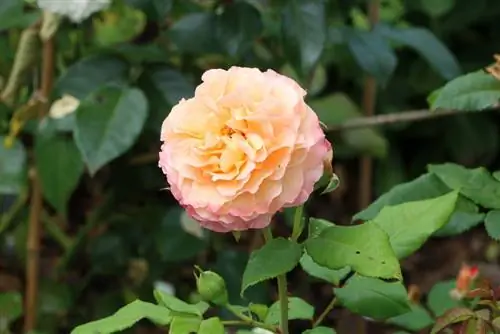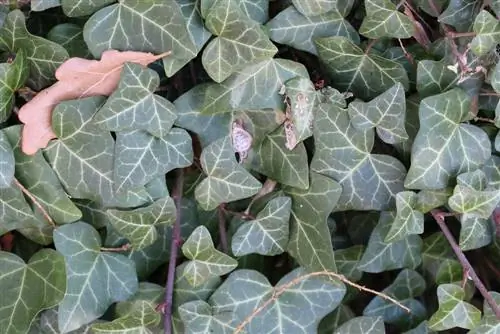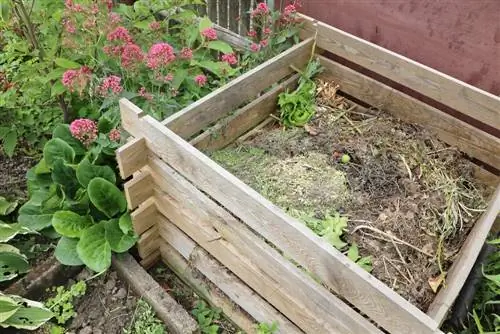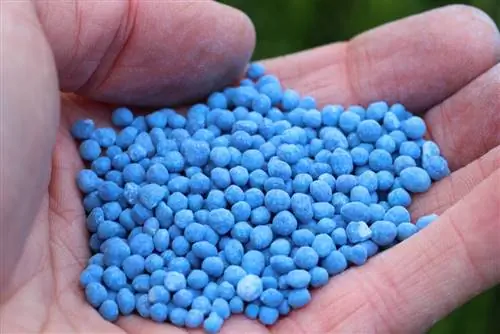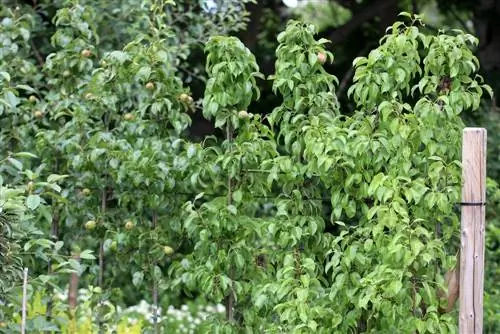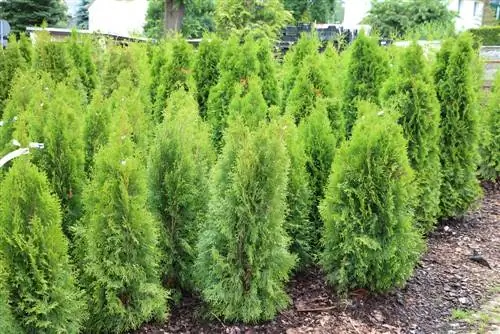- Author admin caroline@plants-knowledge.com.
- Public 2023-12-17 03:39.
- Last modified 2025-01-24 12:45.
Rose fertilizer is traditionally used for various roses. It is ideally tailored to the needs of rose plants. The fertilizer is available in different versions, as a long-term fertilizer, as an instant fertilizer, in pellet or liquid fertilizer form. Especially with larger containers, fertilizer is sometimes left over because there are not that many roses in the garden. So the question arises as to what else it can be used for.
Composition
The composition of the fertilizer varies depending on the manufacturer. It is always important to have a good combination of the main nutrients:
- Nitrogen (for vigorous growth)
- Phosphorus (increases flowering)
- Potassium (keeping plants he althy)
Compared to universal fertilizer, special fertilizer for roses contains less nitrogen. This promotes flowering more than growth.
In addition, fertilizers for roses contain various trace nutrients.
For example:
- Magnesium
- Boron
- Iron
- Copper
- Manganese
- Sulfur
Magnesium and iron are higher than in universal fertilizer because roses have an increased need. Copper helps control fungal diseases, making roses less susceptible to powdery mildew.
Various shapes
There are different forms of rose fertilizer available in stores. Long-term fertilizer works over a longer period of time and gradually releases its nutrients. Sometimes fertilization at the beginning of the growing season is enough. Otherwise, roses are fertilized twice a year. Long-term fertilizer usually consists of organic material.
Mineral fertilizer is available to the plants more quickly, compensates for nutrient deficiencies and ensures immediate better plant growth. The dosage forms also differ:
- Fertilizer sticks
- Pellets
- Grains
- Liquid fertilizer
Note: Liquid fertilizer is an exception; it is particularly suitable for potted plants as it is added to the irrigation water.
Rose fertilizer for other plants
If the nutritional needs are similar to those of roses, the fertilizer is also suitable for them. Some packaging also states if it can also be used for other plants. Sometimes you just need to adjust the dosage for use.
potted plants
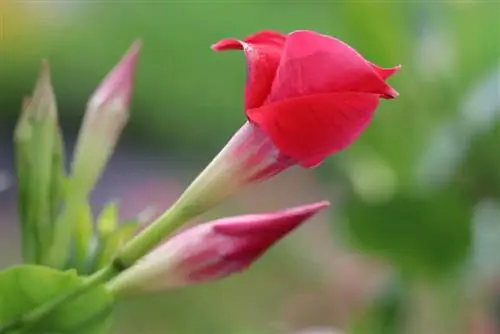
Long-term fertilizer for roses, which is also suitable for potted plants, can be incorporated into the respective substrate when planting. Depending on the package instructions, liquid fertilizer is applied with every watering or at the appropriate intervals.
Perennials
Some fertilizers for roses are also suitable for flowering perennials due to their composition. Fertilization is carried out at the beginning of the growth phase, before flowering. Long-term fertilizer is well suited for beds that can no longer be easily accessed during the growth and flowering phase.
Woods
In particular, shrubs and trees from the rose family can be supplied with rose fertilizer. These include:
- Ornamental Quinces
- Crabapple
- Rosehips
- Fruit bushes and trees
Other shrubs for which the fertilizer is also suitable:
- Lilac
- Gold Rain
- Snowball
- Forsythia
Pellets or grains are incorporated directly into the root area of the trees. The dosage is similar to that of roses.
Note:
Larger trees need more fertilizer than small rose bushes.
Climbing and climbing plants
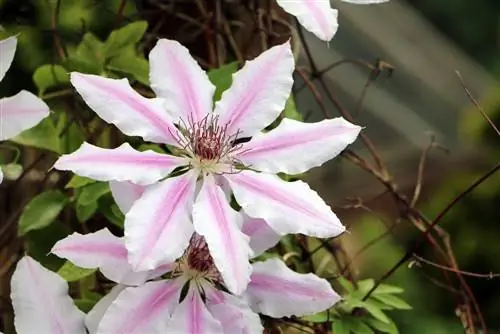
Clematis and honeysuckle also need fertilizer. Whether fertilizer for roses is suitable for this is stated on the respective packaging. Climbing plants need fewer nutrients than roses; when using them, the dosage may need to be halved. The fertilizer is then worked into the soil around the plants.
Unsuitable plants
Fertilizer for roses is not suitable for all plants, although it does not do any harm if the dosage is not too high. The following plants should not be supplied with it:
- Green plants (including lawns): They need more nutrients for he althy leaf growth, but with roses the focus is on rich flowers.
- Vegetables: Particularly heavy-feeding vegetables would be under-supplied with such fertilizer because it contains too little nitrogen.
- Hedge plants: When fertilizing these plants, more emphasis is placed on rapid shoot and leaf growth.

